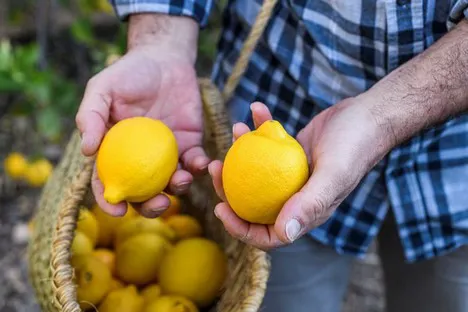The Spanish Fino (or Primofiori) lemon campaign is about to end and prices have remained stable. For the past two weeks, the prices of trading operations have been rising due to the nearing end of the campaign, perhaps because of a wish to try having enough fruit to extend the Fino campaign, or simply due to pure speculation; two behaviors that usually go hand in hand, according to Ailimpo. Prices are averaging between 0.31 and 0.37 Euro per kilo in the Region of Murcia, the main producing area in Spain.

"Be that as it may, the result is that prices at origin should, on average, be high enough to ensure a profitable Fino campaign for the producers," say sources from the interprofessional.
Besides, the active demand in terms of volume confirms that consumption levels in Europe are good, although the prices paid by retail chains are certainly depressing, which led last week to the interprofessional issuing a complaint in a letter to the supermarket chains.
"There are two completely misaligned realities; two unconnected markets, and this is apparently breaking the normal logic of the supply and demand. But that's the way things are," they argue.
In this final stretch of the Fino lemon campaign, producers are standing firm, although the increased costs, not only of the fruit, but also of energy, materials, packaging, transport, etc., are not being transferred to the sales market.
Regarding the Russia-Ukraine conflict and its impact on lemons, Ailimpo says that Russia is already suffering a strong devaluation of the ruble together with difficulties to pay for imports. In the case of Argentina, the start of the season, traditionally in March, has been delayed due to the poor prospects for these markets. The focus will therefore be on trade with the EU, the UK and the U.S. In the case of South Africa, the main supplier of lemons to these markets, business to that area is also at risk. "The result will be increased competition and pressure on the European market this summer, where the economic situation is not buoyant, and that could have an impact on consumption".
Grapefruit sales much lower than in previous years
There's still little dynamism in grapefruit sales. Activity is much slower than in the same period of previous years. In the case of Israel, there has been a gradual decline of imports into Europe. Arrivals from Spain also continue to decline, and there has been a confirmed drop of Turkish volumes, basically due to pesticide controls. The market demand is still moderate. Despite the decrease in Florida's supply, the increase in transportation costs is making the product expensive. As a result, sales are slow and prices remain unchanged.
Regarding the Russia-Ukraine conflict, the impact on grapefruit is very limited, as exports to Russia only account for an average of 2% of Israel's total Star Ruby exports.
For more information: www.ailimpo.com
